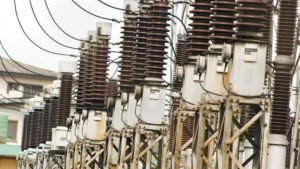
By David Akinmola
A recent report by the National Bureau of Statistics (NBS) has unveiled the ten Nigerian states offering the lowest retail prices for cooking gas, bringing much-needed relief to households grappling with rising fuel and inflationary pressures.
As of August 2025, the cost of refilling cooking gas cylinders fell significantly in many states. For both the 5kg and 12.5kg LPG cylinders, several states emerged as leaders in affordability.
Key Findings:
- 12.5kg Cylinder:
The states with the lowest refill costs include Benue (₦15,102.50), Borno (₦15,176.39), Imo (₦15,177.58), Ogun (₦15,204.43), Cross River (₦15,563.89), Oyo (₦15,622.38), Ekiti (₦15,657.50), Nasarawa (₦15,765.24), Ondo (₦15,801.50), and Kogi (₦15,904.50). - 5kg Cylinder:
The states where the 5kg refill was cheapest are Delta (₦5,657.50), Bauchi (₦5,721.75), Borno (₦6,070.56), Imo (₦6,071.03), Ogun (₦6,081.77), Benue (₦6,090.00), Akwa Ibom (₦6,122.17), Zamfara (₦6,176.24), Cross River (₦6,225.56), and Oyo (₦6,248.95).
What’s Driving the Disparities:
Experts point to several factors behind the differences in price across states:
- Transport & Logistics: States closer to supply hubs or with better infrastructure tend to have lower delivery costs.
- Distribution Efficiency: Where there is more competition among marketers or better supply chain efficiency, prices tend to be lower.
- Regulatory and Local Costs: Differences in local taxes, levies, and operational charges can raise or suppress final retail prices.
- Demand and Volume: States with higher demand for LPG may benefit from economies of scale, helping to keep per-kg cost down.
Implications for Consumers:
For households in states with the lowest LPG prices, this marks a meaningful saving in monthly budgets, especially for low-income families who rely heavily on LPG for cooking.
The drop in prices for 12.5kg cylinders from ₦20,609.48 in July to ₦16,195.07 in August, for example, represents a sharp relief of over 21%.
What to Watch:
Stakeholders are calling for:
- Improved infrastructure and better road access to reduce transportation costs.
- More transparency in pricing structures.
- Government intervention to stabilise and make LPG widely affordable, especially in states that still suffer high rates.
As Nigeria continues to navigate economic pressures, variations in cooking gas prices underscore how geography, policy, and logistics combine to affect everyday cost of living for millions of Nigerians.







